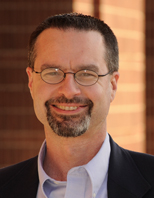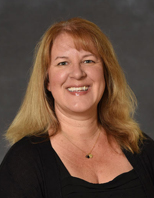February 12, 2020
To the University of Michigan Campus Community:
Many members of the University community have asked about their rights and responsibilities, as state employees, in campaigning for or against a candidate or ballot initiative. We have developed the following information to help you understand the many activities in which you may engage, either as private citizens or as members of our campus community, as well as those for which University resources cannot be used, under Michigan law.
First, individuals, including those who are members of the University community, may participate fully in political activities, provided they are acting on their own behalf and using their personal time and resources. However, Section 57 of the Michigan Campaign Finance Act prohibits public bodies and anyone acting for a public body from using public resources to support or oppose a candidate or the qualification, defeat, or passage of a ballot proposal.
Thus, if public resources are not involved, faculty, staff, and students have great leeway to engage in political activities. Here are some examples of the kinds of activities in which faculty, staff, and students may engage as individuals on their own time, provided they do not use University resources and do not say or imply they are acting on behalf of the University:
- Donating money to support or oppose a ballot initiative or political candidate.
- Acting as a campaign volunteer by writing letters, making phone calls, knocking on doors, or distributing flyers in support of or opposition to a candidate or ballot proposal.
- Organizing or attending rallies in support of or opposition to a political candidate or ballot proposal.
- Writing letters to the editor or op-ed pieces supporting or opposing a political candidate or ballot initiative.
- Giving speeches and participating in debates for or against a particular candidate or ballot proposal.
- Writing to elected officials to express personal opinions on a candidate or ballot initiative.
- Renting University facilities for campaign-related events, on the same terms available to any member of the public under applicable use policies for that facility, provided that fundraising will not occur at that event.
The Michigan law includes several exceptions that permit limited use of public resources for certain activities that would not constitute support for or opposition to a candidate or ballot proposal, even though those activities might be relevant to electoral decisions. Here are some examples of activities in which faculty, staff, and students may generally properly engage under the law, even if public resources are used:
- Conducting scholarly research on the effects of a ballot initiative or political issue on the University, on the state, on the economy, etc.
- Compiling and assembling data and other factual information on the effects of a ballot proposal or on candidates’ positions.
- Disseminating factual material and/or the results of scholarly research on a ballot proposal or political issue to news organizations and academic journals.
- Posting factual material about ballot proposals or political candidates and/or the results of research on a ballot initiative or political issue to a University website, Facebook page, or Twitter account.
- Planning conferences, forums, symposiums or panel discussions on campus, or inviting guest speakers (including, in some circumstances, candidates) to campus, to discuss campaign-related issues.
Faculty, staff, and students cannot, however, use public resources to engage in political activities for or against a candidate or ballot initiative. Here are some examples of political activities that use public resources in a manner that would generally not be permitted under Michigan law:
- Sending out a campaign mailing using University stationery or postage purchased by the University.
- Using an official University e-mail list or listserv to campaign for or against a ballot initiative or candidate running for office.
- Using University equipment to copy material supporting or opposing a ballot initiative or candidate, subject to existing departmental policies regarding personal use.
- As recently clarified by the Michigan Secretary of State, using a University office or other University facility, or using other University resources, such as a University-provided telephone, computer, e-mail address, social media account, etc., to support or oppose ballot initiatives or candidates running for office, even if you do not state or imply that you are speaking on behalf of the University in doing so.
- Purporting to carry on a political campaign in the name of the University or purporting to speak on behalf of the University when supporting or opposing a candidate or ballot initiative, whether in speech, writings, or social media postings.
If you plan to engage in any activities related to electoral decisions using University resources, it may be helpful to seek additional guidance to ensure that the activities are constructed so that they do not appear to constitute support for or opposition to a candidate or ballot initiative.
Further general information, including frequently asked questions and answers, has been posted to the University’s website. Please direct additional questions to Maya R. Kobersy in the Office of the Vice President and General Counsel at (734) 764-0304 or [email protected].
Sincerely,
Cynthia H. Wilbanks, Vice President for Government Relations
Timothy G. Lynch, Vice President and General Counsel



